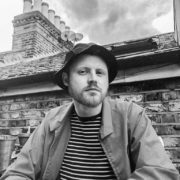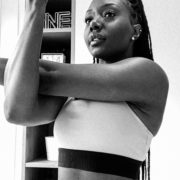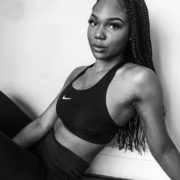GUAP Interviews: London Photographer, Lewis Khan, For The Isolation Issue

Over the last few months, the Covid:19 lockdown has affected the lives of millions of people all over the country. However, in the midst of the fear and confusion, came an army of young creatives who came to entertain, inspire, and motivate the masses. This cover is called the ‘Isolation Issue’ because it was created in the thick of the Covid:19 lockdown. We worked with talented photographers to shoot individuals via face-time and had the opportunity, to speak to them about the impacts of Covid:19 on their creativity. We had the chance to interview and feature London photographer, Lewis Khan, for the Isolation Issue.

Tell us a little about yourself?
My name’s Lewis, I’m a photographic artist from south London. I work with stills and moving images. My portrait based work is a study of emotion, relationships, and identity.
What inspired you to do what you do?
Taking photos for me is a way of being tactile with the world. It’s as if you are walking around with your arms out and your eyes closed and you’re kind of feeling your way around. That’s how I feel about taking photos. This is what I first enjoyed about photography as a teenager and it’s something that has stayed with me into my professional life.
How has covid:19 affected your work?
COVID – 19 hasn’t massively affected my work in a negative way since its online-based. It’s had a massive impact. Everything I had coming up was canceled, and as it goes on that effect just gets further and further into the future.
What was the biggest challenge of working from home whilst in self-isolation?
I’ve grown to quite like it, but probably because I know it’s a temporary thing.
On a day to day, how do you balance a personal and professional life, especially now that you’re working in quarantine?
To be honest I think it’s easier to get that balance right now more than ever. Work before was very intense and often lots of late nights etc. Now that things have slowed some of that pressure has gone and things are able to happen at a more comfortable pace. It’s a weird one but it has opened my eyes to better working practices for myself.
What are some of the highlights/successes you’ve had most recently?
I recently had my first photo book published. The book is called Theatre and is the culmination of 4 years worth of work as an artist in residence at the Chelsea & Westminster and West Middlesex Hospitals in London. The work started out as a voice against the privatisation of the NHS, and as it went on became also a study of human strength & fragility. We sold out the 1st edition in a week and the 2nd editions are going now too.
What’s next for you on your journey?
I’m currently putting together a video installation for a show. It was supposed to be in June, now it’s scheduled for the Autumn, we’ll see maybe it’ll move again. It brings together work I’ve slowly been making over the last year and a half, some stuff in the hospital environment, some stuff more personally. It focuses on relationships.
What would be your advice to other creatives, struggling to maintain creativity and motivation in isolation?
Don’t be too hard on yourself – we’re in a global pandemic. These aren’t normal times so it’s important not to beat yourself up if you’re not feeling 100% creative. Do what you can and plan for what you can’t do.
What have you learnt about yourself and the world whilst in isolation?
Like everyone my world has become much smaller as a result of COVID – my street and the nearest shops and that’s basically it. To take a positive out of this it’s made me give time and value to those that inhabit that immediate space around me. Where before I was often busy rushing here rushing there, now I’m able to feel very present, both in myself and in my community.
How do you hope our society will change for the better after COVID -19?
Big question. One thing I’d like to focus on is key workers. We’ve seen throughout COVID how important these people are to society (not that we didn’t know this before) but these are the same people the government keeps referring to as ‘low skilled workers’. I’d like to see these people properly valued and paid, and for an end to government cuts to essential services.
Check out the GUAP Arts & Culture section, to discover new art, film, and creative individuals.




![ZINO VINCI’S ‘FILTHY & DISGUSTING’EP BRINGS YOU TO THE CORE OF THE ARTIST [@ZinoVinci]](https://guap.co/wp-content/uploads/2023/10/Zino-4.jpg)





![Remel London’s [@Remel_London] “Mainstream” is a must attend for upcoming presenters!](https://guap.co/wp-content/uploads/2017/02/REMEL-LONDON-FLYER-FINAL-YELLOW-COMPLETE-1.png)